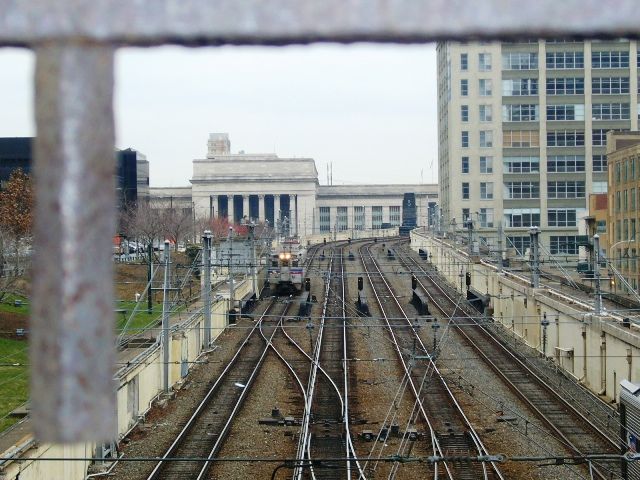SEPTA listens to riders on service change regs

By Anthony Campisi
For PlanPhilly
SEPTA altered its position on a controversial service planning change, meant to consolidate and streamline existing rules, in the face of concern from rider advocates.
The SEPTA board voted on Thursday for new regulations to govern tariffs, emergency services, special services, promotions and public hearings.
The rules, as presented to SEPTA’s operations committee last week, would have required SEPTA to hold a public hearing if the authority planned on decreasing service on a route by more than 25 percent of its total weekly service for a week or more.
SEPTA general counsel Nick Staffieri said that the percentage came out of concern for making the authority compliant with federal regulations.
Transit advocates, however, raised concern that the threshold was too high and could allow SEPTA to implement backdoor service cuts.
Matt Mitchell of the Delaware Valley Association of Rail Passengers said that SEPTA did something similar in the 1990s, when it “nibbled away” at services by instituting small 2 percent and 3 percent cuts to routes a year.
In response to that concern, SEPTA lowered the threshold that would trigger a public hearing to 15 percent in the final version of the rules.
“Good communication solves a lot of problems,” Mitchell said, adding that discussions between SEPTA and advocates helped clear the air.
DVARP has suggested several long-term approaches to the problem of altering service levels in response to changing ridership.
Among its proposals to SEPTA is to consider adding service level changes to the annual service plan process, which is the mechanism the authority uses to add new bus routes and change existing routes.
DVARP also suggested SEPTA consider classing routes into different service levels based on ridership and importance and setting headways according to the level in which a route is classed. For instance, all routes in the highest level of service would have a set headway that would be shorter than other levels with routes of less importance and with lower ridership needs.
The new regulations also allow the SEPTA board to change tariffs, or fares, after a public hearing has been held.
Staffieri said that the change arose out of a legal challenge in response to SEPTA raising its base fare in 2001 to $2. He said the board decided to change the proposed fare from $1.90 to $2 in response to public concerns that the $1.90 fare would be difficult for riders to pay.
However, because of the way the public hearing requirement was written, the legality of the change was questionable.
“It really makes the public hearing a sham,” he said of the old requirement.
In other news, the SEPTA Board also approved a series of contracts, including a $2.7 million contract to the Fairfield Co. to design and install a radio communications system in the Center City Commuter Tunnel. The system will support the data requirements of the federally mandated Positive Train Control Project, and work is scheduled to begin next month.
The board also approved a $2.1 million contract to A&E Construction Co. for work on relocating the current railroad passing siding from Route 202 to County Line Road in Chalfont. Work is scheduled to begin next month.
SEPTA also continued to be operating in the red, according to the board’s monthly financial report.
The authority’s deficit after subsidies was $1.1 million for the month of January, bringing the fiscal year to date deficit to $17.1 million.
CFO and treasurer Rich Burnfield blamed part of that deficit on decreased ridership. Passenger revenue was $1.1 million, or 3.5 percent, below budget.
The board also reelected Pat Deon and James Schwartzman to one-year terms as SEPTA chairman and vice chairman, respectively. The two ran unopposed and were confirmed by unanimous voice votes.
Contact the reporter at campisi.anthony@gmail.com
WHYY is your source for fact-based, in-depth journalism and information. As a nonprofit organization, we rely on financial support from readers like you. Please give today.



